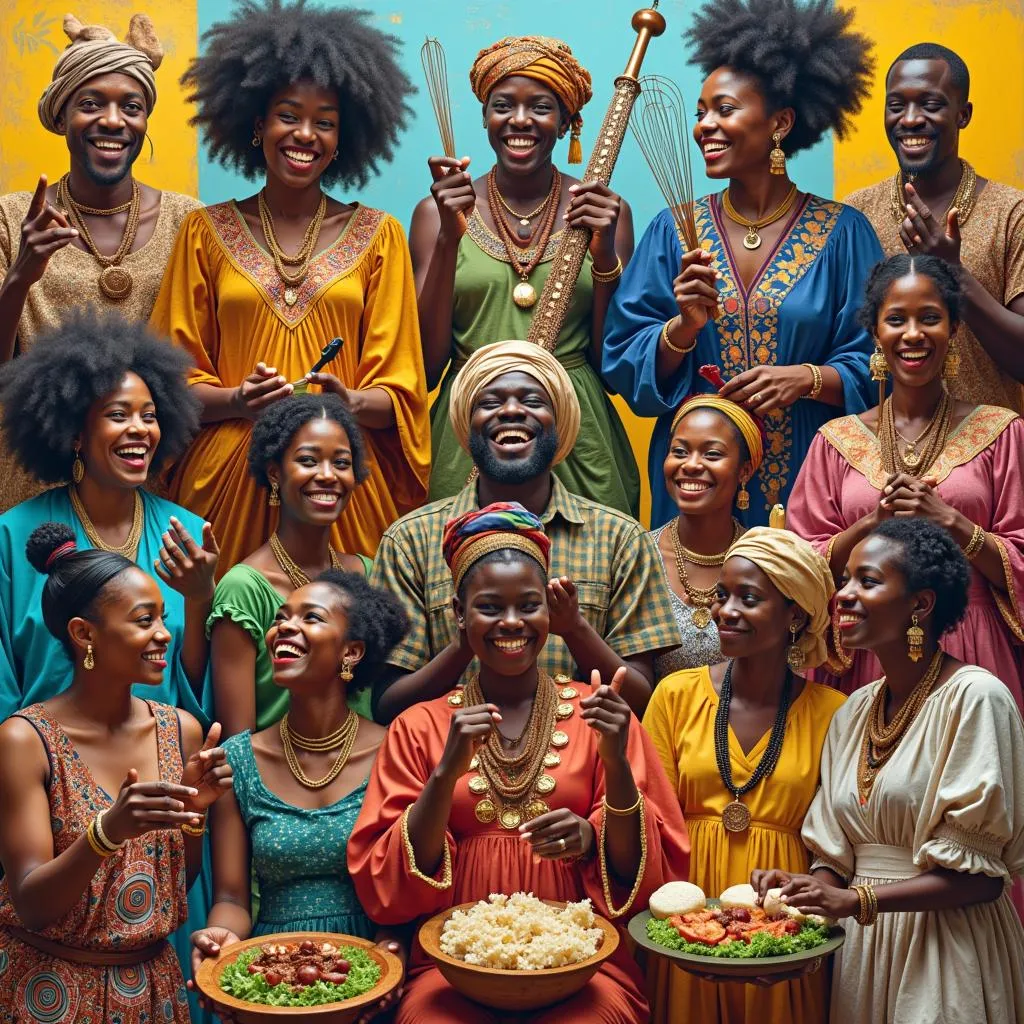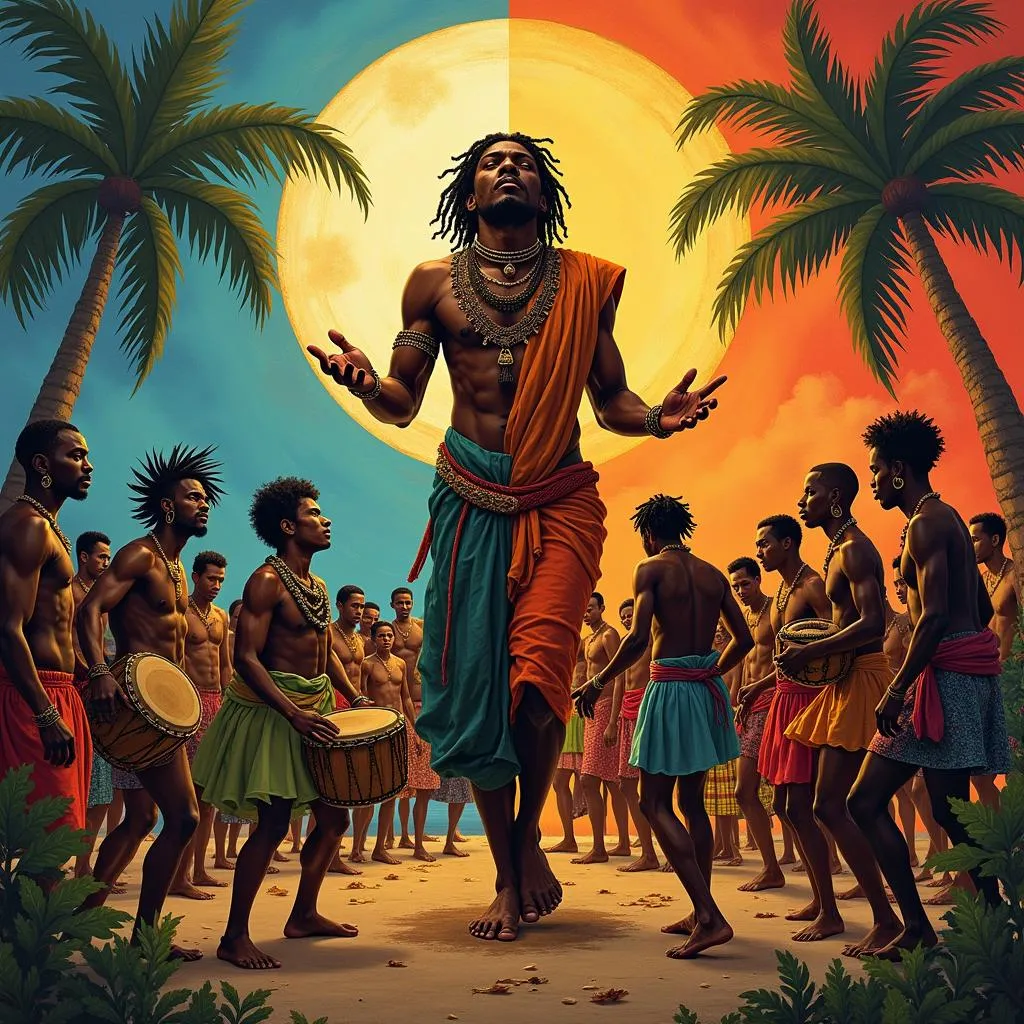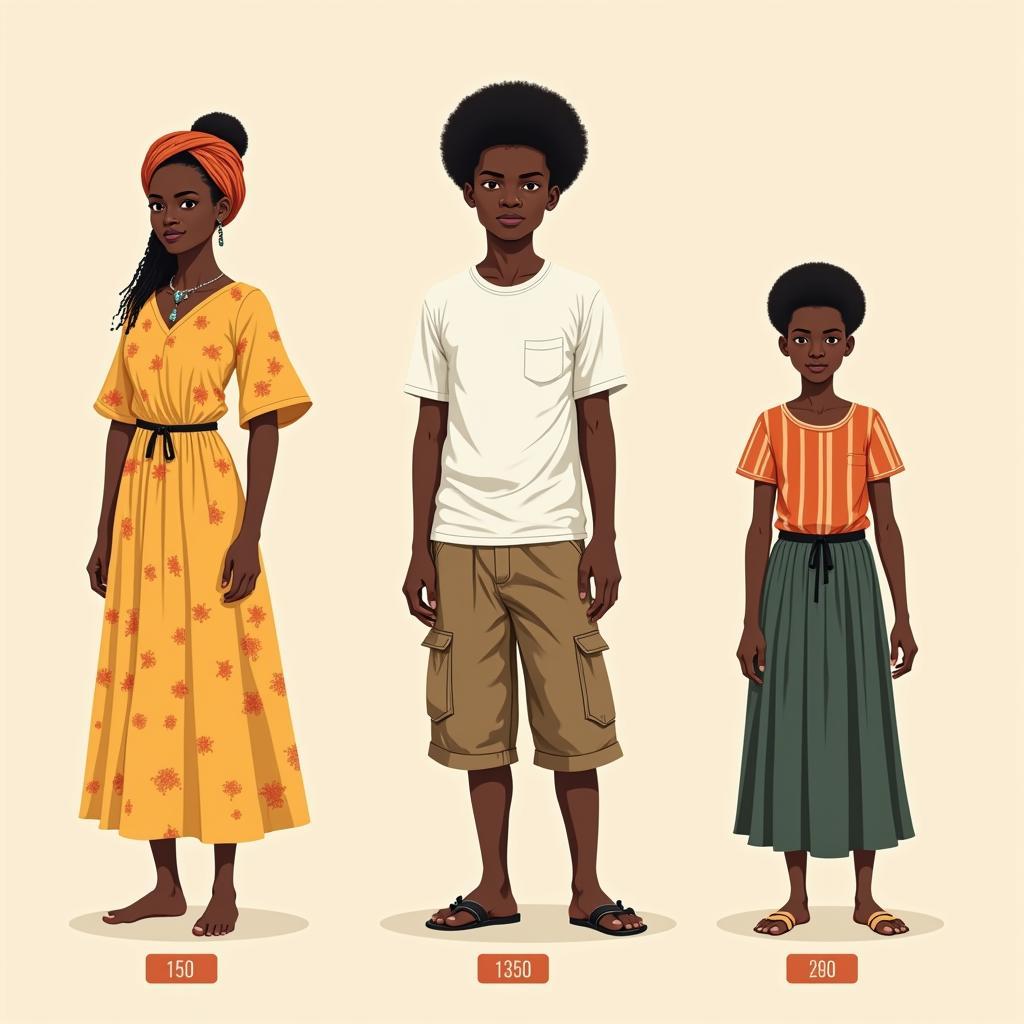The African Diaspora and Caribbean Diaspora: Two Sides of the Same Coin
The African Diaspora And Caribbean Diaspora, while often considered distinct entities, are inextricably linked by the transatlantic slave trade. This shared history of forced migration, enslavement, and resilience has shaped the cultural landscapes of both regions, leaving an indelible mark on their music, art, food, language, and spiritual practices.
 Cultural Connections: African Diaspora and Caribbean Diaspora
Cultural Connections: African Diaspora and Caribbean Diaspora
Shared Histories, Distinct Identities: Understanding the Nuances
While the transatlantic slave trade serves as a common thread, it is crucial to recognize the unique experiences and cultural formations within each diaspora. The African diaspora encompasses people of African descent scattered across the globe, including the Americas, Europe, Asia, and the Middle East. Each region developed its own cultural hybridity, blending African traditions with those of the indigenous populations and European colonizers.
The Caribbean diaspora, while a subset of the broader African diaspora, possesses a distinct identity shaped by its specific colonial history, island geography, and the convergence of African, European, and Indigenous cultures. This melting pot of influences gave rise to vibrant and diverse cultural expressions, evident in the region’s music, dance, and language.
Cultural Echoes: Music, Art, and Spirituality
The influence of African rhythms and musical traditions reverberates throughout the Caribbean diaspora. Genres like reggae, calypso, and salsa all bear the hallmarks of African musicality, with its emphasis on polyrhythms, call-and-response patterns, and improvisation. Similarly, African artistic traditions find expression in Caribbean art forms, from the intricate beadwork and textiles to the vibrant masquerade traditions.
 Spiritual Practices in the African and Caribbean Diasporas
Spiritual Practices in the African and Caribbean Diasporas
Spiritual practices offer a powerful lens through which to explore the interconnectedness of the African and Caribbean diasporas. West African religions, such as Yoruba and Fon, were transported to the Americas through the slave trade and evolved into distinct but related Afro-Caribbean religions like West African Voodoo, Santeria, and Candomblé. These spiritual systems demonstrate the resilience of African traditions and their ability to adapt and thrive in new contexts.
Beyond Borders: Reclaiming Narratives and Building Bridges
The African diaspora and Caribbean diaspora are not static entities frozen in the past. They are dynamic and evolving communities constantly engaging in dialogue and exchange. Contemporary artists, writers, and intellectuals from both diasporas continue to explore the complexities of identity, belonging, and the legacies of colonialism.
Movements like Pan-Africanism highlight the shared struggles and aspirations of people of African descent worldwide. Similarly, the rise of “Afropolitan” identities reflects the growing interconnectedness of the African continent and its diaspora, transcending geographical boundaries and fostering cultural exchange.
Conclusion: A Shared Legacy, A Global Future
The African diaspora and Caribbean diaspora, woven together by history and connected through culture, offer a powerful testament to the resilience and creativity of the human spirit. Understanding the nuances of these interconnected diasporas allows us to appreciate the richness and diversity of global African cultures. As we move forward, it is crucial to continue to build bridges of understanding, celebrate shared heritage, and amplify the voices of both the African and Caribbean diasporas on the world stage.



